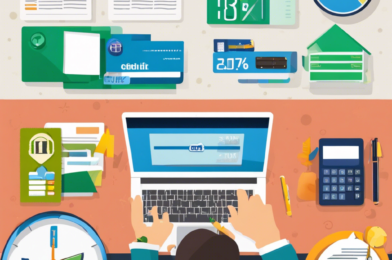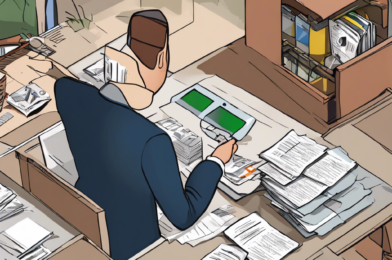Understanding your credit report is an essential aspect of financial literacy, yet many people remain unaware of its significance. Your credit report is a comprehensive document that provides a detailed history of your credit activity. It serves as a financial report card, offering a snapshot of your borrowing and repayment behavior. By delving into the intricacies of your credit report, you gain valuable insights into your financial health and creditworthiness.
This document is typically compiled and maintained by credit bureaus or credit reporting agencies. These organizations gather information from various sources, including banks, credit card companies, and other lenders. The data collected encompasses a wide range of credit-related activities, such as loan applications, credit card usage, and payment history. All this information is meticulously recorded and presented in a structured manner within your credit report.
One of the critical reasons to understand your credit report is its impact on your financial opportunities. Lenders, such as banks and credit card issuers, rely heavily on credit reports to assess your creditworthiness. When applying for a loan, mortgage, or even a rental application, these institutions review your credit report to gauge your financial responsibility and reliability. A strong credit report can unlock favorable loan terms, lower interest rates, and a smoother approval process.
Your credit report contains several key sections that provide an overview of your credit history. The initial section typically includes personal information, such as your name, address, and Social Security number, ensuring the report pertains to you. Following this, the report delves into the heart of your credit activity, detailing accounts, credit inquiries, and public records. Each item listed provides specific information, such as the account type, creditor, credit limit, current balance, and payment history.
Public records, such as bankruptcies, foreclosures, and tax liens, are also included in your credit report. While these records may negatively affect your credit score, understanding their presence is crucial for managing your overall financial health. Moreover, credit inquiries occur when lenders request your credit report, and they can impact your score, particularly with multiple inquiries over a short period.
In conclusion, your credit report is a powerful tool for understanding your financial standing. It offers a comprehensive view of your credit history, allowing you to identify areas of strength and improvement. Regularly reviewing your credit report can help you spot errors, address discrepancies, and take proactive steps to build a strong credit profile. By staying informed and taking charge of your credit, you can make confident financial decisions and secure a more prosperous future.





